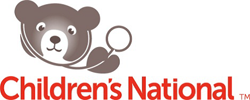|
The Senior Security Training assesses security training needs, develops and oversees the delivery of the security training program for the organization, and develops strategies to further the goal of the physical security program through security training, education, and awareness initiatives throughout the enterprise. Minimum Education
Bachelor's Degree
Specific Requirements and Preferences
Experience as a trainer in a law enforcement or physical security environment. Corporate experience preferred.
Minimum Work Experience
10 year(s)
Specific Requirements and Preferences
At least 10 years of progressive leadership experience in a corporate security program or public law enforcement agency.
Required Skills/Knowledge
Must possess knowledge of the operations, services and activities of a comprehensive law enforcement/security program. Must demonstrate solid interpersonal skills, professional judgment, problem solving skills and competency in the delivery of training programs. Must have excellent oral and written communication skills. Must possess excellent leadership skills and demonstrate the ability to analyze, strategize, and implement a department training program. Demonstrates self-motivation and ability to self-direct work. Possesses a strong understanding of information technology necessary for managing a records maintenance program, website content coordination and oversight of online/web-based training program materials. Advanced computer skills/familiarity with business software required.
Functional Accountabilities
Security Officer Training Program
- Oversee the design and implementation of security training courses to include classroom, self-studies, computer-based, and web-based training, as appropriate.
- Coordinate initial and refresher knowledge and skills training to security staff on organizational expectation for the delivery of security and protection of personnel, property and assets against fire, theft, vandalism, terrorism, and all illegal and unauthorized activity.
- Monitor the training program to ensure security staff competency in all aspects of their job responsibilities.
- Coordinate training schedules and compile records relating to the delivery of training, including attendance records, measured performance of security staff during training and the effectiveness of the training.
- Manage, provide coaching, and assess performance of security field training officer staff; direct personnel and provide assistance as needed.
- Monitor the threat environment, development in training delivery, and research regarding adult training programs to identify strategies for maximizing the effectiveness and efficiency of the security-training program.
Security Awareness Training Program and Initiatives
- Provide general and specialized security awareness instruction to non-security staff including the organization's security policies and procedures during new employee orientation, refresher training, and other times and outlined in the security awareness training program.
- Act as a resource and answer questions for security personnel and general staff on security issues.
- Conduct awareness or educational meetings with select personnel/departments as needed to enhance safety and security of the working environment.
- Help devise strategies to communicate security information to general staff, security personnel and managers.
- Oversee information on the security website and develop strategies to maximize its ability to encourage staff compliance with security policies and procedures.
- Collaborate with HR training staff and other department managers to ensure maximum effectiveness of security awareness initiatives.
Advocate for Safety
- Participate as a member of the senior security team and make recommendations for enhancing the delivery of security services and protection of personnel, property, and assets against fire, theft, vandalism, terrorism, and all illegal and unauthorized activity.
- Perform productive security patrols/checks of the hospital, garage and perimeter. Recognize conditions which are or will compromise the security of the organization and take immediate actions to mitigate.
- Report and/or correct safety and security violations encountered during patrols/checks.
- Take proactive measures to mitigate thefts, disturbances and other criminal incidents on facility property.
- Check to ensure that visitors and staff members are wearing proper identification badges/passes.
Safety
- Speak up when team members appear to exhibit unsafe behavior or performance
- Continuously validate and verify information needed for decision making or documentation
- Stop in the face of uncertainty and takes time to resolve the situation
- Demonstrate accurate, clear and timely verbal and written communication
- Actively promote safety for patients, families, visitors and co-workers
- Attend carefully to important details - practicing Stop, Think, Act and Review in order to self-check behavior and performance
Organizational Accountabilities (Staff)
Performance Improvement and Compliance
- Conduct training needs assessments through review and analysis of training programs, assessment of the security operation, and interviews with stakeholders.
- Contribute to the review, maintenance, and updating of department policies and procedures.
- Provide reports to senior security leadership on training conducted, performance of personnel, and effectiveness of training. Offer recommendations for improving the training curriculum.
- Evaluate the performance of security staff in the field as it relates to the adherence to training protocols and department policies and procedures during real world situations.
- Investigate use of force incidents, as assigned, to ensure consistency with policy, procedures and department training.
Organizational Commitment/Identification
- Partner in the mission and upholds the core principles of the organization
- Committed to diversity and recognizes value of cultural ethnic differences
- Demonstrate personal and professional integrity
- Maintain confidentiality at all times
Customer Service
- Anticipate and responds to customer needs; follows up until needs are met
Teamwork/Communication
- Demonstrate collaborative and respectful behavior
- Partner with all team members to achieve goals
- Receptive to others' ideas and opinions
Performance Improvement/Problem-solving
- Contribute to a positive work environment
- Demonstrate flexibility and willingness to change
- Identify opportunities to improve clinical and administrative processes
- Make appropriate decisions, using sound judgment
Cost Management/Financial Responsibility
- Use resources efficiently
- Search for less costly ways of doing things
|
 Children's National Medical Center
Children's National Medical Center
 Jan 17, 2026
Jan 17, 2026 

